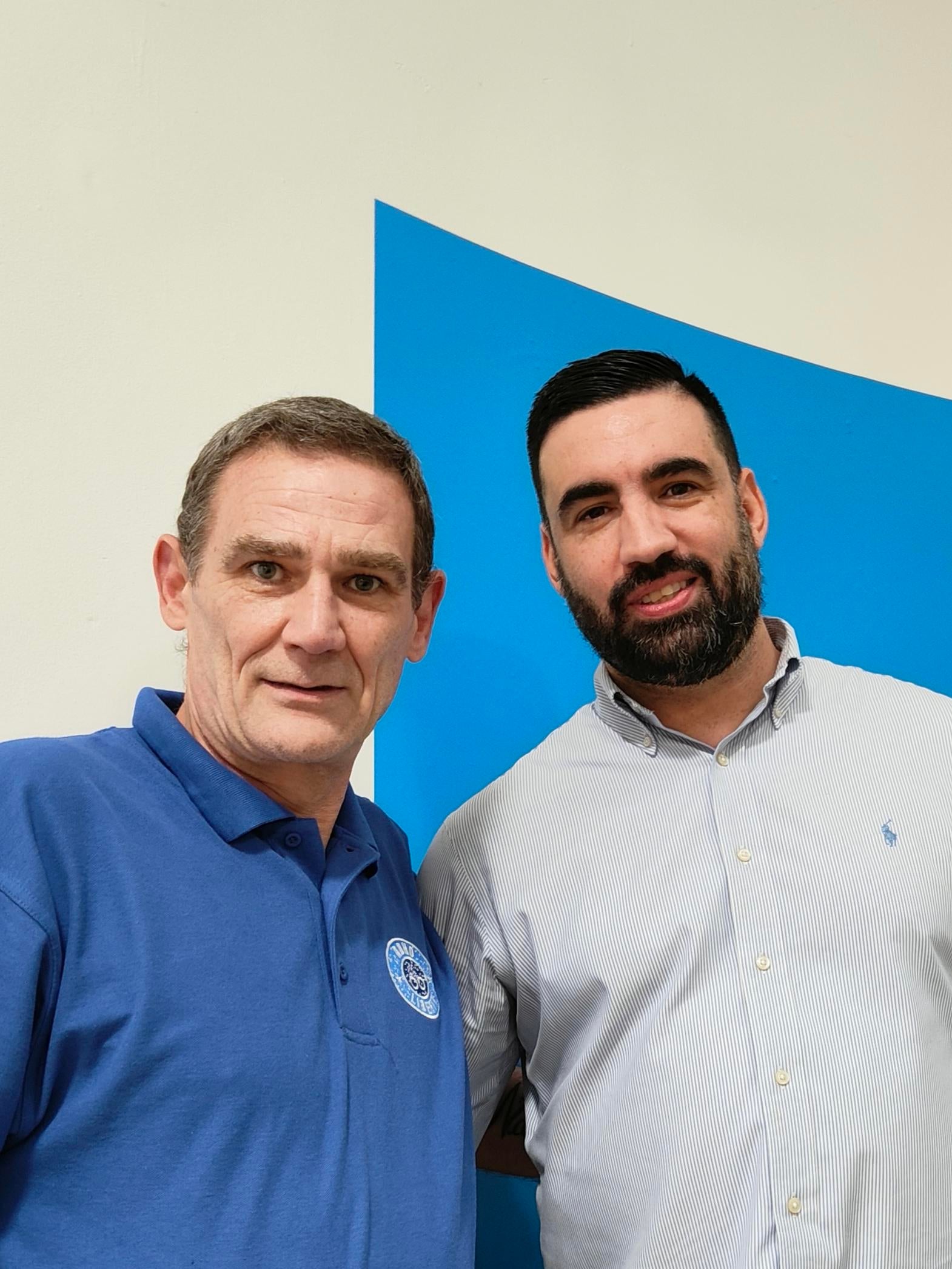One of the heroes of the Fishmongers’ Hall terror attack has warned that more prisoners languishing on indefinite jail terms will lose their lives under a “sentence of no hope”.
Marc Conway, who was handed an Imprisonment for Public Protection (IPP) sentence for armed robbery, was one of three released offenders who bravely tackled terrorist Usman Khan after he stabbed two Cambridge university students.
Mr Conway, who was due to speak at the rehabilitation event in November 2019, helped to disarm Khan after he was wrestled to the ground on London Bridge by Steven Gallant and John Crilly, who were wielding a narwhal tusk and a fire extinguisher.
They feared he would detonate a suicide vest at any moment, which later turned out to be fake.
Despite being hailed as a hero for helping stop Khan, who was shot 12 times by police, Mr Conway feared his actions would land him back in prison under the strict licence conditions of his IPP sentence.
Last week he was finally freed from the draconian jail term under reforms which saw 1,800 IPP offenders who were released at least five years ago have their licences automatically terminated. He described it as “surreal” after years living in fear of recall, even spending the past month staying at home until he was finally free.
However he has called for urgent help for more than 2,600 IPP prisoners still trapped with no release date under the hopeless jail term, as he called for an “appropriate and safe resentencing policy”.

Speaking at a conference on Tuesday, the prison reform campaigner said: “People on IPPs will give up hope. If they are finally released, what is left for them? The worsening mental health of IPP prisoners ensures they will not be released.
“My main concern was that in 20 years’ time, the last IPP is rotting away somewhere but my major concern now is there will be no IPPs left in 20 years’ time because they died from suicide.”
The controversial jail terms, which saw offenders given a minimum tariff but no maximum, were scrapped in 2012 over human rights concerns but not for people already detained.
Of the 2,694 prisoners still incarcerated, around 700 have served more than 10 years longer than their minimum term. At least five IPP prisoners who were given minimum terms of less than six months have remained in jail for at least 16 years.
The sentences have been branded “psychological torture” by a UN human rights expert after at least 90 IPP prisoners have taken their own lives as they lose hope of being freed.
Mr Conway threw his weight behind The Independent’s calls for all IPP prisoners to have their sentences reviewed after highlighting a string of injustices, including Thomas White, who set himself alight after serving 12 years for stealing a mobile phone, and Yusuf Ali, who was hospitalised after spending 61 days on hunger strike.

Addressing the event co-hosted by the Prison Reform Trust and Buckinghamshire New University, Mr Conway called for the government to “give back hope, stop death by suicide.”
“Policies should look towards freedom, not fear,” he said. “There should be an appropriate and safe resentencing policy for those left behind as well as dedicated establishments for IPP prisoners to deal with trauma developed from the sentence – this would help reduce overcrowding, ease pressures on the health service, help staff retention rates, all while still protecting the public.
“Otherwise every year there is a knockback, your mental health gets worse. Give back hope, stop death by suicide.”
He went on to quote an anonymous suicidal prisoner who he had spoken to which highlighted the grave challenges facing someone serving an IPP: “I feel useless, I’m no good to anyone, no-one cares. I have tried to kill myself three times but can’t even do that properly.”
The government has so far resisted recommendations by the cross-party justice committee to resentence IPP prisoners, claiming it will lead to the automatic release of dangerous inmates.
IPP sentences have also been excluded from the Ministry of Justice’s flagship sentencing review, being led by David Gauke.

Pia Sinha, CEO of the Prison Reform Trust, called for politicians to use this “once-in-a-lifetime opportunity to try and make some brave decisions.”
She added: “In amongst all reform measures, which we do need to see as positive and incrementally shifting, we shouldn’t forget the IPP situation.
“If resentencing is a step too far right now, we need to start seriously thinking about the small steps and build towards greater reform. Organisations such as PRT can help the Government with a more solution-focussed approach, how we may be able to de-risk it from a public perception view, and how we need to be guided by evidence, rather than rhetoric.”
Dr Ciaran O’Keefe, head of school for human and social sciences at Buckinghamshire New University, oversees the university’s work with therapeutic community prison, HMP Grendon, where Mr Conway served some of his IPP sentence.
“Rehabilitation through alternatives to punishment is key to stopping issues with the revolving door as individuals find themselves going in and out of prison,” he added.
A Ministry of Justice spokesperson said: “It is right that IPP sentences were abolished and we recently terminated the lifetime licences of 1,800 rehabilitated offenders.
“We are now exploring ways to improve access to mental health support and rehabilitation for those still in custody. However, with public protection our first priority, we will not be pursuing a resentencing exercise.”
If you are experiencing feelings of distress, or are struggling to cope, you can speak to the Samaritans, in confidence, on 116 123 (UK and ROI), email jo@samaritans.org, or visit the Samaritans website to find details of your nearest branch. If you are based in the USA, and you or someone you know needs mental health assistance right now, call or text 988, or visit 988lifeline.org to access online chat from the 988 Suicide and Crisis Lifeline. This is a free, confidential crisis hotline that is available to everyone 24 hours a day, seven days a week. If you are in another country, you can go to www.befrienders.org to find a helpline near you


